Alternate headline: 36% of Americans aren’t on Twitter. Actually, given how small a percentage of Americans actually are on Twitter, this result from the latest Harvard-Harris/CAPS poll seems very surprising.
If you’ve never been on Twitter, that is. Otherwise, welcome to the party, pal:
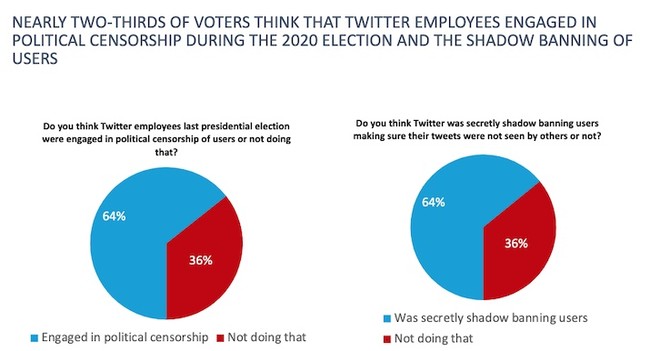
One has to wonder whether those numbers have remained static or in fact are growing with the release of The Twitter Files, this generation’s Pentagon Papers. That analogy grows stronger as it becomes clearer just how much the platform co-opted itself to the bureaucrats in Washington, especially in the Departments of Justice and Homeland Security. Plenty of attention has fallen on former general counsel James Baker, who also played a significant role in the Russia-collusion hoax while at the FBI, but Baker wasn’t the only hook for the bureau at Twitter.
The New York Post discovered that more than a dozen former FBI agents made their way into executive roles at pre-Musk Twitter, and suspects they played a role in one of Twitter’s darkest moments of political interference:
Twitter’s top ranks were riddled with ex-FBI agents and executives, stitching the company even closer to the federal agency now under fire for leaning on Twitter to meddle in the 2020 elections.
More than a dozen former feds flocked to the company in the months and years prior to Elon Musk’s purchase of the social network in October.
The Post found FBI influence was considerably more significant than just James Baker, the FBI’s former general counsel who later worked in the same role for Twitter. He was recently fired by Musk for interfering in the billionaire’s efforts to come clean about past transgressions at the company.
In some cases, the former G-men and -women held positions that would have put them close to company leadership directly involved in censoring The Post’s Hunter Biden coverage in October 2020.
Harvard-Harris asked about the Hunter Biden laptop suppression too, and the numbers are similar:
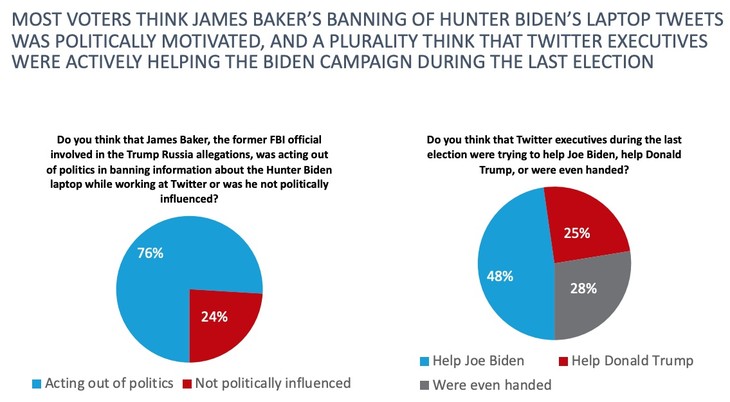
There are plenty of other nuggets in this poll that should worry Twitter’s former execs, as well as the journalists attempting to run interference for them. For instance, nearly the same split in this poll think that mainstream media supports political censorship (63/37), and that journalists are primarily activists rather than fair and unbiased reporters of fact (60/40). A double-digit majority (57/43) want advertisers to stop boycotting a Musk-led Twitter, and a much larger majority wants former Twitter employees prosecuted if they facilitated government censorship on the platform (74/26).
In that environment, journalists whining about suspensions won’t gather much sympathy. Nor should it.
If the Harvard-Harris poll sample became Twitter’s new Trust and Safety Council, the bans would be significantly more narrow. Majorities oppose the use of bans for dissent on trans issues, COVID vaccines, traditional marriage, and so on. They’re not so keen on advocating pre-teen gender transitions or threats of violence:
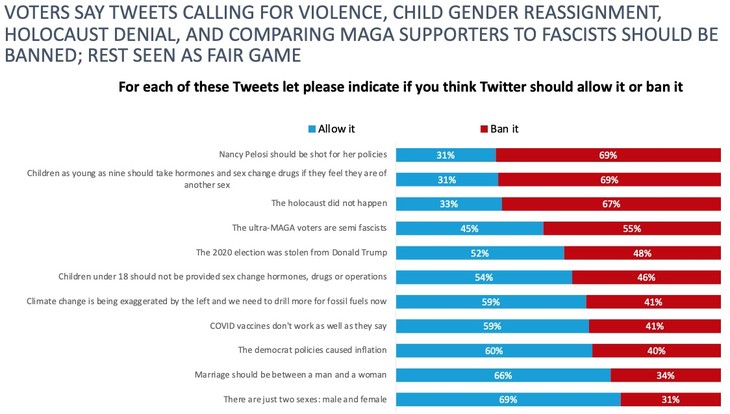
Finally, we can expect House Republicans to open an investigation into the FBI and DHS role in censoring American speech on Twitter and other platforms. That will turn out to be a very popular move. Two-thirds think Congress needs to investigate these issues, while only 33% believe that other issues should take priority. Seven in ten Americans want new laws preventing “corporate censorship,” too. Needless to say, 67% and 70% of this sample would include a lot of Democrats.
Jonathan Turley takes note of these results and believes that a tipping point has been reached, on the media and on the government’s abuses in the name of fighting “misinformation”:
Such slanted coverage clearly losing its hold on the public or its view of Twitter. Indeed, the media continues to write off a large percentage of readers and viewers with openly biased coverage. The public is not buying it. It is buying Twitter. Not only are users signing up in record numbers, but a recent poll shows a majority of Americans “support Elon Musk’s ongoing efforts to change Twitter to a more free and transparent platform.”
In the wake of the latest release, the FBI issued a statement that said that there was nothing to see here and that “the FBI regularly engages with private sector entities to provide information specific to identified foreign malign influence actors’ subversive, undeclared, covert, or criminal activities.”
The statement is notable for what it does not contain: any recognition of the seriousness of the allegations or pledge to conduct its own investigation in whether this relationship crossed over to de facto government censorship. According to some reports, as many as 80 FBI agents may have been tasked to assist in the censorship efforts. Yet, the FBI has offered little more than a shrug in the face of credible constitutional concerns.
According to the Harvard/Harris poll, the public believes that such censorship occurred and warrants action. The denials of the FBI and the dismissal of the mainstream media will only serve to magnify such calls for action.
We can certainly hope so. The story has clearly gotten away from the mainstream media, and they are just as clearly trying to grab it back. It’s time to expose the censorship and corruption — and the mainstream media’s role in covering it up rather than covering it.
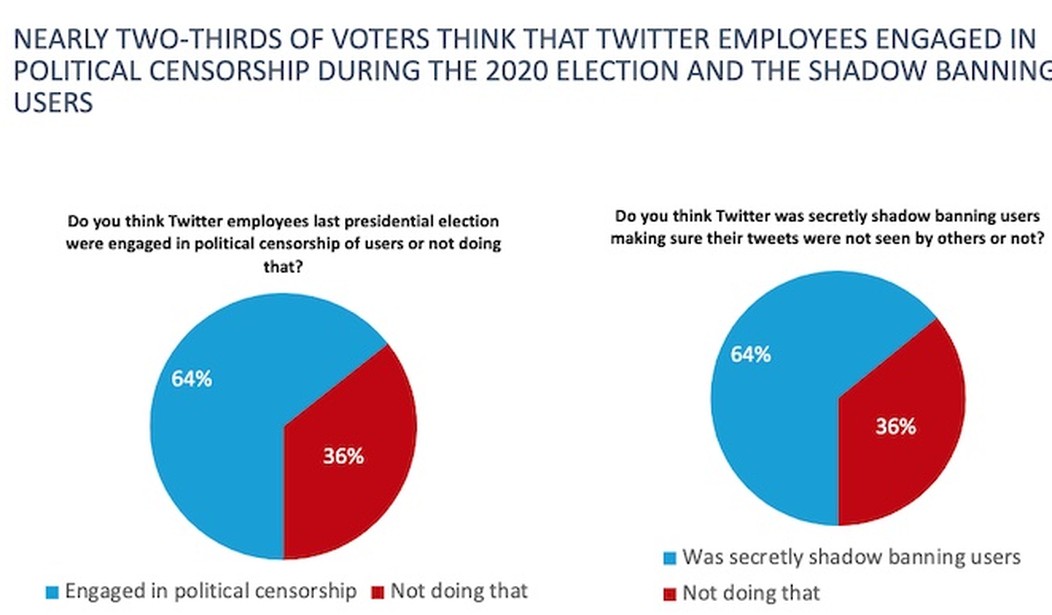
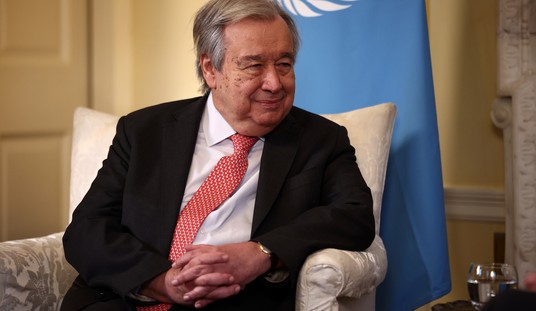






Join the conversation as a VIP Member